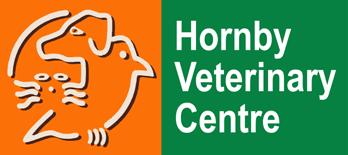






Neighbourhood Watch was introduced to New Zealand as a crime prevention initiative in the late 1970s.


The initiative evolved to become Neighbourhood Support, a community owned and managed organisation with a wide-ranging interest in community support, safety and crime prevention.
Neighbourhood Support became an Incorporated Society in 2000. In 2001 it signed a Memorandum of Understanding with the New Zealand Police. The purpose of the Memorandum of Understanding is to establish and promote a collaborative working relationship between Neighbourhood Support and the police.
Neighbourhood Support aims to make homes, streets, neighbourhoods and communities safer and more caring places in which to live.
This is primarily achieved through the establishment of small cells of households known as a “Neighbourhood Support Group”, comprising anywhere from four to 50 residential households in a single street or suburb.
Groups throughout a single suburb or a wider town or city area are co-ordinated either via a civilian co-ordinator, or through a Community Constable based at a local police station.

The main purpose of the groups is to encourage neighbours to know one another and share information on crime or suspicious activities in their area. Early contact with authorities such as the police is also encouraged for reporting of unusual observations or unacceptable behaviour. Crime prevention information can also be shared with group members via Community Constables, or Neighbourhood Support Area co-ordinators.
A secondary objective of Neighbourhood Support is to activate communities to be prepared for emergencies during a man-made or natural disaster affecting residents


Sue Abel

C/- Ashburton Police Station
Postal Address: PO Box 34, Ashburton 7740
Office Phone: 03 308 3558
Mobile: 027 296 1006
Email: sue.abel@safer.org.nz
– Waimakariri, Hurunui and Kaikoura
Dalice Stewart
Address: c/- Kaiapoi Police Station
149 Williams Street, Kaiapoi
Phone: 027 647 9443
Email: admin@ncns.org.nz
www.northcanterbury.getsready.net
Betty-Ann Smart
Address: c/- Timaru Police Station
20 North Street, Timaru 7910
Phone: (03) 687 9802
Email: scns@xtra.co.nz
Christchurch Area
- Ōtautahi Christchurch and Te Pātaka o Rākaihautū Banks Peninsula
Murray McGusty
Postal Address: PO Box 16103, Hornby 8441
Office Phone: 03 353 8729
Email: admin@canterburyns.net
Sue Jenkins


Selwyn District Council
Postal Address: P O Box 90, Rolleston 7643
Phone: 0800 735 996
Email: sue.jenkins@selwyn.govt.nz

Please support these advertisers as they are supporting you!
Publishers details: Published bi annually by The Job Agency Ltd PO Box 1879
Christchurch 8140
www.markat.co.nz/eye-on-communities
For all advertising and articles enquirers: Phone: 03 961 5184
Email: sales@markat.co.nz
Publication reference: E23C1


What an asset our Kia vehicles have been to us over the last six months! As well as travelling to meetings and events around Christchurch, we were able to have stands at events on Banks Peninsula, including the Governors Bay Fete and both the Duvauchelle and Banks Peninsula A&P Shows.
Barely a day goes by when we don’t receive comments on our new vehicles. Thank you Cockram Kia!
Speaking of meetings, it is wonderful to be at a meeting when someone pipes up to tell us they are a graffiti volunteer in the area – both reporting and cleaning up tagging. It is also satisfying to hear one or more people say that they are a member of Community Patrols. These people are, through their volunteering, helping to make our communities safer and better places to live in.
We all can take some responsibility and do a little to further the cause, and it is all simple stuff:
• Have a household plan for unexpected events - fire, earthquakes, floods etc.
• Connect with and get to know your neighbours
• Look out for each other and each other’s property
• Be adaptable and together we can achieve more.
We owe a big “THANK YOU” to Higgins Contractors and HEB Construction. These organisations are supporting us by installing our street signs. Thank you both very much for your backing!
As always, we are very grateful to those who have contributed articles for this magazine. We have the story about Jacob and the support he got from the Salvation Army Driver Mentor Programme to become a much safer, more responsible and qualified driver.
Superintendent Corrie Parnell, the relieving Canterbury Police District Commander, has a very pertinent message about being safe and feeling safe within our communities and we, the public, have a part to play.

Disputes about neighbours with trees growing over the fence sound familiar? Citizens Advice Bureau have a story about how they helped someone with that issue. Sergeant Lachy Garrick wrote about Police Motorcycles, how they came about, what they do, and the training needed to be part of the team.
You can read these stories and more on the following pages. Once again, we are indebted to those people and organisations that have contributed by placing advertisements in this book. Thank you all very much for your generosity. As usual we ask you, the readers, to support them where you can.
We are extremely grateful to our funders who enable us to carry out our work whether in schools or the wider community. With winter upon us drive safely, keep warm and check smoke alarms are working.
Noho ora mai, Murray NSCA Manager











































































































































































































































































Demand on Police resources continues to experience significant growth, notably in family harm and mental health incidents.
We are seeing greater reporting in family harm offending and, while we continue to encourage people to report harm, police have to prioritise calls for service and consider risks to public safety.
The safety of our community is always front of mind and the three priorities outlined below will help us achieve our goals, mission, and vision to prevent crime and harm in our communities.
Safe homes – families are free from violence, abuse and neglect homes are safe from burglary and other threats to property that make people feel unsafe.
Safe roads – preventing death and injury resulting from crashes, so that everyone who leaves home to travel on our roads can return home safely.
Safe communities – ensuring people are safe and feel safe wherever they go and whatever they do in public spaces, where businesses, social gatherings and entertainment are enjoyed without fear of crime or harm.
Focused prevention through partnerships will help us to achieve these three goals.
Delivering the services New Zealanders expect and deserve, and understanding and providing what the people of New Zealand want from their Police service.

As members of the public, you can help us - we need you to continue to report all crime with as much information as you can
and as quickly as you can, to give officers the best chance at apprehending those who choose to cause harm in our community and to keep our community safe.
Christchurch is a great place to live, filled with people who care about their community and are involved in many events that support our people. Neighbourhood Support Groups, Community Patrols and a large number of other volunteer groups focus on these things too.
There are also measures you can take to help prevent becoming a victim of crime. Always remove valuables from your vehicle, and don’t leave expensive items outside overnight.
Installing security around your home or business such as locks, lights, and cctv can also help to deter thieves and protect you from this type of dishonesty offending.
Please look out for each other as we enter the cooler, darker months. Remember to check on each other and report anything suspicious in your neighbourhood immediately on 111 or 105 if it is after the fact.
Roy Appley Senior Sergeant Community Services
It was great timing to have the handover of our fabulous Kia cars before my final visits to schools in December last year.

As I went to each school to thank the leaders and wish them all the best for the next year, (as many were off to high school) they got to see my car.
By see, I mean climb in and try everything that took their interest!
Now, I’m not the only one who has never been in a brand-new car before, so lots of kids were pretty excited.
When I told the kids that Cockram Kia sponsored the car because Cockram thought that JNS was so important that they wanted to make sure I got to visit their school, kids just beamed wide smiles.


A review of the cars developed, so through child’s eyes, these are the top five WOW features:
1. The welcome music
A sweet little jingle each time you get in, just to remind you that the car is waiting for you and enjoys being taken for drives like a puppy likes walks.
Large enough for big water bottles, but then with a quick flick button, out comes a cup encircler so that anything in a small coffee cup has no way of spilling.
Completely blended into the seats and then fold out for arm rest and drink carousel when needed.


So prying eyes can’t see all the interesting and odd things I have in the car for school projects- dress ups, paint, survival kit items etc.
Designed so that no one could leave a baby in a car seat perhaps but very useful for JNS, so I don’t forget to take the goodies bags for award recipients into assemblies.
Features such as the cup holder button have been assessed thousands of times in the vehicle testing stages, in my car it has been tested a thousand more times, it is still as perfect as new!
So again, a big thank you to Cockram Kia for investing in Neighbourhood Support and in the children of the participating schools and the community.


 Elissa Smith JNS Co-ordinator
Elissa Smith JNS Co-ordinator




In the police we talk about three things: being safe in our own homes, being safe on the roads, and having safe communities in which everyone can thrive.
Our police team works tirelessly to achieve these goals, but we cannot do it alone. We need the support and co-operation of the community to make a real difference.
Events over the past decade have made it clear how important neighbourhood connection is.
We are fortunate in Canterbury that our community networks are strong, and we know this because they have been tested.
However, community connections need to be nurtured and maintained. We encourage everyone to be active members in their communities.
This can be as simple as saying hello to your neighbours and getting to know them. When you know who and what belongs in your neighbourhood, it’s easier to spot anything that looks out of place.
Another way to get involved is by supporting community-led organisations such as Neighbourhood Support and Community Patrols.
We are extremely grateful for the many community members, volunteers and employees of these organisations who support us in our efforts to reduce crime and prevent harm in our communities.
While we continue to do everything we can to achieve safe homes, safe roads and safe communities, I encourage you all to do your part too.
Check on your neighbours, report suspicious behaviour and drive to the conditions. By working together, we can create safer, more connected communities and prevent crime.
Ngā manaakitanga Corrie Parnell Superintendent Relieving Canterbury Police District Commander
Corrie Parnell Superintendent Relieving Canterbury Police District Commander



Opal Fibre Packaging is New Zealand’s leading supplier of corrugated cardboard box packaging. With manufacturing sites based in Auckland, Hastings and Christchurch, Opal Fibre Packaging brings the local presence and depth of experience required to develop innovative customer solutions in line with our Vision; Opal shapes the future through sustainable packaging.

www.opalanz.com



After being amazed at a mural on a container at Addington Te Kura Taumatua when visiting for the Junior Neighbourhood Support programme, Elissa Smith decided to ask the artist some questions:


How do you choose a design for a wall that suits the community?
Each design is unique in the way that it relates to the community and how it is designed.
I worked with New Brighton Outdoor Art Foundation who asked the community via social media what kind of bird they would like to see on the wall.
There were some great ideas but one mentioned that there are not many moa murals around and the wall was perfect for it, being so tall.








Last year I worked with Addington Te Kura Taumatua to create an artwork on the Selwyn Street Toilets. We asked the students to submit design ideas which were used in the final design for approval. Students came and helped paint the wall too.


I also like to improvise without a design and have been given permission from homeowners to create an artwork on their fences.
How do you think people benefit and what comments do you get?
I think the community benefit from the artworks as they can be enjoyed in the
streets in everyday life without the need to go to fancy galleries.
I choose to paint dogs and birds a lot as I find so many people can relate and connect with them. Many people stop and comment on the artwork while I’m painting and most of it is really positive.
I get comments like, “this is so beautiful”, “this is what the community needs”, “better than a blank wall”.
I’m always looking for communities to work with to create more art.
I am able to work with ideas to bring a design together to meet the needs and ideas of the group that I am working with.
To make contact with Rodrigo Rozas, check out: Chileonenz.com
Facebook: chileonenz
Instagram: chile_onenz





Makora Street runs between Fendalton Road, just past St Barnabas Church, and Weka Street, with three bends. It contains 45 residences, the entrance to Fendalton Park, and the Fendalton Croquet and Bowling Clubs and Bowls Canterbury. Over one hundred people live in the street at any one time.

Sometime before the earthquakes, Pat Creasey came to the area and talked about Neighbourhood Support, and I set up the Makora Street group. I thought a profile of the street over about 15 years could be of interest.
With permission, I signed up all residents to the Neighbourhood Support database. When we have new residents, I visit them and get their details, send a group email saying I have welcomed them on the street’s behalf and give the new arrivals the names of everyone in the street. Having this group email list available plays an important part in the life of the street.
The street contacts are widely used by members to advertise books, fruit, plants etc. to give away, items members would like to borrow, animals and birds lost and found, etc.
The street has changed little in the last 15 years. Only one house was red stickered after the earthquake, the only house that did not have a wooden frame, and it has been demolished and replaced. Until the middle of last year, it was the only house to have been replaced since before the earthquake. One further house is being replaced currently.
As a street we have approached the City Council to paint white lines in the centre of the three bends and this has made a difference to the excessive speed of many drivers, but not all. The lines were repainted a few weeks ago.
We also got permission to move the barrier into Fendalton Park closer to Makora Street and so stopping groups of youths using the Bowling Club’s car park on Friday and Saturday nights for noisy gatherings and leaving rubbish and other unmentionable items. However, we had to pay for this ourselves.
Many works have taken place in the street itself. We have had a transformer explosion and a large number of burst water pipes. But we have had no new water problems since a new water main has been installed. The team that did the job were marvellous, keeping us informed of everything and inconvenience to a minimum. At the end of the job members of the team were all made redundant because their Auckland base firm pulled out of Christchurch.
Over the last four days different street members gave them morning teas and I wrote them all a testimonial hoping that would be useful in their seeking of new jobs.
We had annual street parties at the Bowling Club until Covid 19 put a stop to it. We must start again.
24 Byron Street, P.O. Box 19598
Woolston, Christchurch 8241, New Zealand phone 0064-3 365 8811, Fax 0064-3 365 8813
www.rmfnutraceuticals.co.nz
In full support of local community safe
#WeDesignInStyle
E-mail: alan@rmfnz.com rmmla.co.nz



smcdesign.co.nz 03-3777898 info@smcdesign.co.nz



Sea Cleaners is a charity organisation that was started by Hayden Smith in Auckland 20 years ago, with the goal of removing rubbish and plastics from our waterways and marine environment.

We now have five boats operating throughout New Zealand – in Northland, three crews in Auckland, and the newest addition being the Canterbury crew.
A normal day for our crew of two in the south (when the weather is good), is out on the boat in Lyttleton Harbour and the bays throughout Banks Peninsula, gathering muscle buoys and rubbish that has washed up from offshore and, of course, saying hello to our friendly hector dolphin family on the way.
On the days when the weather isn’t great, we jump in the ute with the bright green kayak on top and choose which river or coastline to clean for the day, ranging from Kaikoura down to Timaru.

Each of the five crews aim to remove 2,000 litres of rubbish from our waterways every day.
Since the inception of the Canterbury crew in January 2023, we have removed 200,000 litres.
If you’re keen to get involved and want to help our beautiful marine environment, we take volunteers out on the boat with us whenever we can and also help run land-based clean-ups for large groups.
But remember, you can help out the cause by taking a bag with you any time you go to a river or beach, picking up rubbish along your walk.
Contact: www.seacleaners.com




If you spot someone sitting on the footpath with a sign begging for help –of course you feel concerned and want to do something for them.
But you may or may not be looking at a homeless person. You can’t be sure, because many people begging on the streets have somewhere to stay at night.
We at the Christchurch City Mission are on the frontline of looking after homeless and we know who is who, and who needs what, and so supporting our work directly supports these people.
We run an Outreach Service that visits people on the streets and we also have our emergency accommodation quarters for men and women who come off the streets.

Backing that up are our many other services to help them get healthy and into a home.
Homelessness is complicated. It includes people sleeping rough in doorways and under bridges, as well as those who couch surf, or sleep in garages and cars and, of course, the several dozen who find refuge in our shelters.
It can take a long time to build trust and help long-term homeless into better living and
their plight is far more lonely and stressful than you can imagine. Sleeping rough is merely a symptom of complicated problems in their lives, such as mental health and addiction issues.
That’s why our advice is to not give money to people you find on the street. For all your kind intentions, it is unlikely to be spent on something positive for their health. But they are part of our wider community, and we should treat them with dignity and kindness.
This is how we recommend you interact with homeless on the streets:
• Don’t give money
• It’s okay to offer food
• It’s kind to make eye contact and say hello
• Call our Outreach Service on 0800 787 855 or email us at outreach@citymission. org.nz if you want to make sure they have been offered help, or if you are a business and they are sleeping outside your premise
• Call 111 if you have serious concerns for their health or that harm may come from their behaviour.
Donate to the Christchurch City Mission to fund staff or donate to their foodbank.











Why join our network?
A well-connected community helps improve the safety, resilience, and well-being of all.
If you live in the Timaru, Waimate or Mackenzie Districts, you can join our network to receive an information pack, email newsletters and alerts.
You can join, or start, a street group which could help you:
• Get to know the people that live around you
• Receive emails and alerts from our partners, including Police and FENZ
• Gain tips and resources to improve neighbourhood safety
• Be better prepared for emergencies.
By working together, we make our neighbourhoods safer and more welcoming.
It’s easy! You can join individually, join a group, or start one, you decide what works best for you.
You could:
• Meet regularly, or as needed
• Stay connected online, by phone, face to face or by email
• Undertake some neighbourhood projects.
Our projects TAGLINE – We work with Community Patrol to identify, remove and record graffiti.
SHOPSAFE – We work with Police to connect retailers who support one another to deter retail crime.
AORAKI CONNECT – Our volunteers connect with Multicultural Aoraki to welcome and support newcomers.

RURAL CRIME PREVENTION – We work with Police and rural communities to look out for one another helping prevent rural crime.




Complete this survey — reduce your risk of being burgled.
Doors and Windows
1. Are all locks to outside doors either dead locks or strong bolt locks?
2. Can door locks be opened by breaking a window and reaching through?
3. Can internal doors be locked?
4. Are all locks in good working order?
5. Do you lock the internal door from your garage?
6. Can you account for all copies of keys to your home?
7. Are window locks properly and securely mounted?
8. Do you keep windows locked when they are shut?
9. Do you use locks that allow windows to be secured partly open? Garage
10. Do you lock your garage door at night?
11. Do you lock your garage door when away from home?
12. Do you have good secure locks on garage windows and doors?
13. Do you lock your car when its parked in your garage?
Holiday
14. Do you notify neighbours when away on holiday?
15. Do you have mail and circulars collected for you when you are away?
16. Do you stop deliveries and newspapers when on holiday?
17. Do you have shades up and lights on when on holiday?
18. Do you use timers on lights & radios to make it look like you are home?
19. Do you arrange to keep lawns and gardens maintained?
20. Are you a member of a neighbourhood support group? Environment
21. Do you have sensor lights around your house?
22. Are shrubs and bushes well trimmed near your house and borders?
Safe Practices
23. Have you recorded all serial numbers and stored them away from home?
24. Have you uniquely marked valuable items (etch or invisible)?
25. Do you have a description of valuable property?
26. Have you displayed a sign that items are marked for identification?
27. Do you have an alarm?
28. Have you displayed a sign stating that your house is alarmed?
29. Do you report suspicious activity or people to Police immediately? 30. Do you know not to disturb anything if you are burgled? just to call Police? Every
Yes No




Adult Literacy in Ashburton.
We offer literacy & numeracy support for adults and English as a second language.
03 308 5322 | 027 226 9496 adult.literacy@xtra.co.nz www.ashburtonlearningcentre.co.nz

LEMACON is home to your local electricity professionals.
LEMACON is home to your local electricity professionals.
Our experienced team provides efficient, cost-effective & innovative on-property electricity solutions overhead & underground.
Our experienced team provides efficient, cost-effective & innovative on-property electricity solutions overhead & underground.
We make sure you have access to power, where you need it when you need it.
We make sure you have access to power, where you need it when you need it.

T: 0800 333 075 • E: admin@lemacon.co.nz
T: 0800 333 075 • E: admin@lemacon.co.nz



W: www.lemacon.co.nz
W: www.lemacon.co.nz

Neighbourhood Support is a “we” thing. It doesn’t have an “I” or “them” or “those”, it is all encompassing and involves everyone in the community.
It encourages care of neighbours, an understanding of what our area has the capacity to do, especially in the wake of an event, and encourages the community to do its best with issues and problem solving.
Neighbourhood Support can be the catalyst with all of that, but it is ultimately the community we rely on to address its needs. Recently I was made aware of rubbish that had been dumped on the side of the road.
It transpired it was from a stolen trailer and this was the residue the thieves obviously didn’t want.
Snap, Send and Solve is an app you can download on your mobile phone. Take a photo and send it to the relevant authority. The council can clear it, but involvement with the police also indicates a trail that can be followed.
Thefts from our local business premises, both retail and commercial, can be addressed through a collective hub, which can share information using What’s App, security cameras as intelligence, and basically working together to provide outcomes.
A lack of understanding of emergency services has prompted a community ethnic day, so that these valuable services can be identified, become tangible, and above all, understood by newcomers to the district who may be unaware of how these work and operate.
It then empowers people to use these services and initiate a call without hesitancy. It is also about youth capacity – helping a neighbour with rubbish, walking a dog, pulling some weeds, showing them how to use their phone; these are all small things that can make such a difference to someone else who does not have the skills or ability.
Neighbourhood Support is a great initiative. Use it and benefit from it.


Do you sometimes need a hand to get through the day?
Would you benefit from seeing a friendly face, somebody reliable and
Our services support you to live safely and independently in your own home. Supports are tailored to meet your individual needs and are available seven days a week.
We support all ages and disabilities.
Services we provide include:
Personal Supports
• Showering
• Dressing
• Medication oversight
• In-home respite care

Home Help
• Cleaning
• Meal preparation
• Laundry assistance
Life Navigator
• Social support
• Sleep overs
• Nursing care
• Wake overs
• Shopping
• Outings
• Companionship
• Navigating providers and other life admin tasks
• Working with you to increase independence and achieve life goals
• Supporting you in making appointments and attending with you if needed
Contact Us Today

s your website costing you money or making you money? FatWeb specialise in sites for companies with less than 20 staff. Standard business websites from $997+gst, with full e-commerce sites also available, which means your business can sell products 24/7.

But before you do anything, read the free report on the 11 things you must know before choosing a website company. Email enquiries@fatweb.co.nz and include ‘free report’ in your subject.

With over 15 years’ experience - we know what we’re doing!

- 38 Lowe St, Addington, Christchurch 8011
- Level 3/5 Nelson Street, Auckland CBD, Auckland 1010 Call 0800 FATWEB, or email enquiries@fatweb.co.nz to book a FREE consultation.







Our Neighbourhood Support champions in Selwyn are our Community Response Team Volunteers. There are 32 teams spread throughout the district with just over 180 people involved.

They come from all walks of life but have a common passion to look after their local people in a civil defence emergency.
Selwyn Emergency Management is looking for passionate Selwyn people to join their Community Response Teams (CRT), especially in the Brookside/Irwell, Greenpark, Killinchy, Norwood, Weedons, Broadfield, Coalgate, Motukarara, Springston, and Windwhistle areas.
The role of a CRT is to check on the most vulnerable people, gather information about what has happened/is happening during an emergency, and open a drop-in centre




if required. Volunteers are a friendly face to the public, treating people with compassion and respect in emergency situations.
Lakeside CRT team leader Raewyn McCloy says the role is very fulfilling and can be a lot of fun. “You can be as involved as you want to be, but it’s all about community. We’re there to check on everyone, make sure they’re okay, pass on any needs to the main team at the council and you have first-hand information to give people too.

“From personal experience, in the earthquakes in our area we had no communications and in some ways that was the scariest part, so it’s good to be able to help people and our people are phenomenal. We’ve had a few events and we train every year. During COVID, I was the person on call for taking people RAT tests and masks and things. We love being part of it. You really get to know your people and you’re looking after one another.”
If you’re available to attend annual training and complete a Police Vetting check, then we want to hear from you. Find out more at selwyn.govt.nz/civildefence or email cdem.team@selwyn.govt.nz

Neighbourhood Support aims to make our homes, streets, neighbourhoods and communities safer and more caring places in which to live.
We have a purpose-built Neighbourhood Support website, selwyn.getsready.net, and over 800 Neighbourhood Support groups already exist in Selwyn, with details securely stored in this database.
Would you like to join one?
Making Selwyn a safe place to live, work and play!
Content provided courtesy of the Selwyn District Council: www.selwyn.govt.nz.
Sue Jenkins Selwyn District CouncilPostal Address: P O Box 90, Rolleston 7643
Phone: 0800 735 996
Email: sue.jenkins@selwyn.govt.nz






Volunteering Canterbury is likely known for its recruitment service for not-for-profits who wish to build volunteer teams to enable them to get their services, whatever they may be, out into the community.
Recruitment is just one part of the picture, though, and there is much to know!

Volunteers gift their time to not-for-profit organisations and receive no financial benefit. They do this because they want to, and that contribution makes a difference to the wider community.
However, for organisations with volunteer programmes, there is a real need to be astute with the process around managing volunteer teams; volunteers want a worthwhile experience!
Alongside a well-utilised recruitment platform, Volunteering Canterbury provides a series of training to support volunteer management, and that includes around the recruitment, retention and recognition of those volunteers.
There are processes in paid workplaces, which must be in place for those in unpaid workplaces. Health and Safety is the one which most readily springs to mind; the provision of a safe workspace for all those on-site, whether paid or unpaid, for example.
Rather than expect every organisation to know every detail about its obligations to volunteer teams, Volunteering Canterbury runs a full annual programme of training, which seeks to provide support for those
in volunteer management/coordinator roles, Tautoko Network: Supporting the Community Sector. This network offers monthly one-hour sessions cover topics such as: engaging youth, reimbursement for volunteers, privacy, polices and procedures, health and safety, fraud.
Alongside those sessions, more in-depth workshops are also on offer, such as Evaluating your Organisation, Positive Youth Development and Unpacking the Gifts of Good Supervision.
Volunteering Canterbury also recognises that the governance teams of not-for-profits are also almost entirely volunteer-driven. And they too need support!
With this in mind, a range of opportunities for training is offered around the topic of governance throughout the year, most
notably the Governance Bites sessions which, funded by Rātā Foundation, are held one evening each month.
Topics covered in this series so far this year have included: Board and Management – Getting the Balance Right; Better Board Decision Making, and Non-Profit Boards Adding Value. Still to come are Confident Oversight of Finances and the Board’s Role as a Great Employer.

For more information on any of these opportunities, please go to the ‘events’ page on our website: www.volcan.org.nz.
New Zealand has a high volunteering participation rate, with over 50 percent of the population volunteering with an organisation or directly in their communities. Volunteering has a statistically discernible positive impact on wellbeing and social cohesion and the economic value of volunteering is estimated at $4 billion a year.
Supporting that volunteer effort is a key role for Volunteering Canterbury.
We’re here to help you make a difference!

We’re friendly. Approachable. Flexible.
Available 24/7
48 Papanui Road, Merivale, Christchurch
Tel: 03 355 0348
www.quinovic-merivale.co.nz





Servicing • All Mechanical Work WOFs • Complete Engine Rebuilds
Full Diagnostics • Performance Turbo Install Body Work • Rebuild Specialists Specialists In European Cars
Quinovic
Thanks to Belfast residents living around our yard in Tyrone St for keeping an eye on things!
Ph Alex on 0272231724 to report anything suspicious.
301A Blenheim Road, Upper Riccarton, Christchurch 0800 4 NZEURO | 027 537 0213 workshop@prestigemechanical.co.nz
www.prestigemechanical.co.nz
Welcome to…
The Borough. With everything under one roof, we’re the place the local’s go.
The Richmond Club’s deep-rooted connection to the local area spans 130 years which continues with The Borough; the people’s place.


P. 03 389 5778
75 London Street, Richmond, Christchurch theborough.nz | richmondclub.nz
Dusk. Relentless wind. A loud crack. An almighty crash. She peeks outside and sees her neighbour’s tree smashed over the boundary fence.
By next morning, the big wind has gone. No sign of her neighbour. On holiday, she guesses. Gathering all her strength and a ladder, she pushes the broken branches back over the fence.
Days come and go. Leaves fly about. The neighbour spies her over the fence and yells, ‘You. You there, you mutilated my tree!’
‘The wind—’
‘You swung on it. Swung on it like a monkey. Snapped it, you did.’
‘No—’
‘Well, you would deny it. Wouldn’t you?’
He storms away, leaving resolution up for grabs and down to her.
But it’s hopeless. Everything is wrong. What to do? What to do?
She contacts Citizens Advice Bureau and pretty soon feels as calm as a cup of tea. After talking through the issues with grace and perspective, she comes away armed with knowledge.
Verified, nuanced and non-judgemental knowledge about her rights and obligations.
Fast growing trees are prone to dropping limbs in high winds. Technically, the limbs belong to the neighbour, so she was allowed to push them over the fence, although in the interest of good relations,
she could’ve waited to chat with him first. His rage, his baseless accusation says more about him than it does about her.
Thus armed, she feels confident to tell her neighbour he’s barking up the wrong tree.

Everyone and anyone can ask Citizens Advice Bureau (www.cab.org.nz) about everything and anything, via email, online chat, or face-to-face at locations across Christchurch and Selwyn:

Salvation Army Building
250 Colombo St, Sydenham, 03 366 6490
Fendalton Library
4 Jeffreys Road, 03 351 7804
Hornby Community Care Centre
Goulding Ave, 03 349 5236
Eastgate Mall - Upstairs in the library at The Loft
Every Tuesday from 11-2pm
Rolleston, Te Ara Atea
Ring to check hours, monthly 03 349 5236.
Citizens Advice Bureau
Free phone 0800 367 222
Visit our web site www.cab.org.nz






In March 2022, Michelle and her husband Gary were walking hand in hand outside a shopping mall.
After a driver mounted the curb, Michelle and Gary were struck, resulting in severe injuries for Michelle, and devastatingly, Gary losing his life.
A year later, Michelle bravely took the stand at the offender’s sentencing hearing to deliver her victim impact statement. It marked the end of a long and overwhelming Court process; one that Michelle isn’t sure she would have been able to get through without her Victim Support worker, Deborah.
“I’ll be honest, I really didn’t know Victim Support existed before this,” Michelle says. “It was just like a ray of sunshine from nowhere when Deborah popped up at my bedside.”
Deborah met Michelle after she was transferred from hospital to a rehabilitation facility, and the pair immediately clicked. “While I was visiting Michelle on that first day, she let me know that she was getting very overwhelmed with the calls from the Court and Police,” Deborah explains.
“For me those calls were a reminder of everything, and I struggled with it,” Michelle says. “So, when I met Deborah, I asked her if she would be able to take those calls for
me and pass on any important information. Deborah was always so considerate contacting me with updates,” Michelle says. “She just had a way of softening the information and was so compassionate.”
The Court process can be intense and often takes an emotional toll on those involved. Pair this with Michelle dealing with the loss of her husband, as well as life-altering injuries, Deborah’s support was absolutely vital for her and her whānau.


“Deborah was my support in so many ways,” she says. “We were given financial support, emotional support, and practical support. I was totally blown away and extremely grateful.”
On the day of the sentencing hearing, Deborah was in Court with Michelle and her family and read statements on behalf of Michelle’s son and daughter. “I couldn’t have read those myself,” Michelle says, “so, it was really lovely to have Deborah’s support.” For Deborah, the mahi she does is a privilege. “It’s humbling that Michelle has allowed me to walk this journey with her, and it really brings home just how important our service is.”
“You shouldn’t underestimate the value of people,” Michelle adds. “The support doesn’t take away the pain, but it helps you progress and it’s so valuable.”
The Christchurch City Council, Off the Wall volunteer-based graffiti reporting and removal programme, offers a range of volunteering options including Tag Spotter, Tag Remover, Group volunteering and a less formal tier of volunteering known as “friends” of the Graffiti Programme.

The following is an article submitted by one of our wonderful volunteers.


Cycle walkway. Sunshine. Active people out and about. Something pulls Carol up short. It’s a scribble on a fence. She can’t make out what it says. What she does know is that it makes the path look uncared for.

By her next morning stroll, other people have noticed that too, for the path is strewn with litter. On the next, there’s takeaway leftovers and grotty grime. A week later, a smashed bottle and vomit. People avoid the area.
The tag that started it all glares back at her like a bad hair day. Neighbours. You gotta love ‘em. Carol’s knows about the Snap
Send Solve app. She snaps a photo of the tag, and the app works out the location, and sends off a report to the council. Clever. Easy. Fab.

Voila! The next day, the graffiti has gone. Pulling on gloves and ups her sleeves, she picks up the rubbish. It’s rains. People feel safe to come back.
Inspired, Carol becomes a tag spotter for the Graffiti Programme. Tag spotting is a perfect form of volunteering for her because she can do as much or little as she likes.
Sometimes, she deliberately goes out for a bike ride or walk to look for graffiti – it’s a great way to combine exercise with a small community-minded action – but most of the time she just keeps an eye out while going about her everyday life.
Funnily enough, her friends start to tell her about tags in their neighbourhood. Tell her, as though it’s her “job” to report it. That changes once she tells them that anyone
can report graffiti and/or become a friend of the Graffiti Programme by signing up at: www.ccc.govt.nz/graffiti.
Months, then years come and go. Graffiti waxes and wanes with the school holidays. As quick as it goes up, it’s expunged by another volunteer or Citycare, armed with a paint brush or a water blaster. The taggers seek other ways to express their boredom. It’s joyful, a joy that her small actions make a big impact. Ehara taku toa i te toa takitahi, engari he toa takitini
Success is not the work of an individual, but the work of many. If you too would like to contribute to keeping Christchurch beautiful and free of graffiti, please contact us on 9418999 or graffitiprogramme@ccc. govt.nz or www.ccc.govt.nz/graffiti.
Please contact us to report graffiti: www.ccc.govt.nz/report/ Phone: 03 941 8999
Or use our smartphone app: Snap Send Solve

Reporting is quick and easy! Help us keep Christchurch beautiful.


For many New Zealanders, getting a driver’s licence is a rite of passage in adolescence that signifies a step towards independence.
However, under the current Graduate Driver Licence Scheme, many people are unable to get the technical knowledge and experience needed to pass the Restricted Licence test due to the rising costs of driving lessons.
Jacob, a 43-year-old learner driver, was admittedly frustrated and dejected after attempting and failing his restricted licence test for the second time in 2022.
This experience is not an anomaly, as Testing Officers at VTNZ are almost failing as many drivers as they are passing.
The restricted driving test was redesigned in 2012 to make it longer and more technically challenging, to improve the safety of young and novice drivers as part of the government’s Safer Journeys road safety strategy.
prior to the test being redeveloped. Seemingly frustrated by the constraints of the licensing system, Jacob’s VTNZ Testing Officer offered an olive branch, and gave Jacob the suggestion to apply for the Community Driver Mentor Programme with The Salvation Army team in Christchurch.
Presently, more than 90 percent of those with the Salvation Army Driver Programmes will pass their test on the first attempt.
The Community Driver Mentor Programme is a life-changing initiative that empowers individuals facing obstacles to obtaining their driver’s licence to get the skills and experience needed to get their licence.

The programme pairs learner drivers, such as Jacob, with experienced and dedicated volunteer mentors, who, alongside the support of a qualified driving instructor, undertake free driving sessions in a Salvation Army car for up to 12 weeks.
The programme pairs learner drivers, such as Jacob, with experienced and dedicated volunteer mentors, who, alongside the support of a qualified driving instructor, undertake free driving sessions in a Salvation Army car for up to 12 weeks.
However, these changes have resulted in more people failing to pass their driver’s licence test. In 2020, only 58 percent of people who sat their Restricted Licence test would pass, as opposed to almost 80 percent
The Salvation Army strive to make a real difference in someone’s life whilst also enhancing road safety and promoting responsible driving in New Zealand.
By participating in this programme, learners not only obtain their driver’s licence, but also gain increased prospects for employment, education, and independence.
Thankfully for Jacob, he took the VTNZ testing officer’s advice, reached out to The Salvation Army, and was paired by the Driver Programmes Coordinator with long-time volunteer mentor Bob.
After completing the Community Driver Mentor Programme and passing his test with Bob’s support, Jacob admitted, “I didn’t think it would be that hard, I thought you’d just drive around and bingo. But it’s not, there’s a lot more to it.”
For many people, the cost of driving lessons is a major obstacle when it comes to obtaining their driver’s licence.
When asked about the challenges he faced, Jacob said, “I’m lucky because it’s $79 a lesson and I didn’t want to let Bob down cause this guy is here to help me”.
Jacob went on to say that having his restricted licence helps him “do what he has to do to keep his head above water” and makes it easier to support his family.
Christchurch Driver Programmes

co-ordinator Andrew McWilliam said that the
rapport and bond built between the two men in the car on their journey “was a thing of magic”.
Bob suggested “that many people don’t know what VTNZ is looking for” and paying for lessons is “out of reach for most people”.
There is no denying that Bob was the perfect person to help Jacob take that next step in his journey and has gone on to advise Jacob during the process of buying a new car.
Jacob was the 20th person Bob has helped get their licence, and suggested his success is built on his determination to “help people like Jacob” and ability to build a rapport that doesn’t interfere with being straightforward.
Volunteer with The Salvation Army Driver Programmes today and help disadvantaged people on their journey towards safer, more responsible driving.
No prior experience is necessary to mentor, the Salvation Army provide all the training and resources you need to get involved.
The Salvation Army strive to make a real difference in someone’s life whilst also enhancing road safety and promoting responsible driving in New Zealand.





Kāinga Ora is proud to work with Neighbourhood Support, New Zealand Police, and Fire and Emergency New Zealand to support community connectedness, safety and security.
We all want safe, thriving and resilient neighbourhoods and Kāinga Ora is committed to building partnerships to help achieve this.
Along with our partners, we have initiated street events to connect people, and to encourage neighbourhoods to have fun and support each other, whilst offering an opportunity for education on personal and property safety, security and fire safety.
These events are an excellent opportunity for residents to learn safety tips and strategies from agencies, ensure they
are connected to services that support their wellbeing, and for neighbours to share contact details and plans in case of an emergency.
The Kāinga Ora community development strategy brings together neighbours who live in housing complexes and draws on the expertise of Neighbourhood Support and NZ Police to help create safety plans, and connect people to ongoing support.

These connections have shown great results for neighbours who now have enhanced feelings of safety and security and a greater sense of belonging in their community.
Community Development manager Amanda Cook says, “Kāinga Ora looks forward to more opportunities to work together in neighbourhoods in the coming year”.
During the cooler months New Zealand households are 29% more likely to have a fire. As the temperature drops the risk of fire increases with people using their heaters, electric blankets and fireplaces.
Fire and Emergency New Zealand’s Winter Fire Safety Campaign is asking New Zealanders to see a fire before it starts.

“It is important that New Zealanders are vigilant this winter to protect themselves, their home and their family from fire”, Fire and Emergency Community risk manager Dean Harker says.
“We attend a significant number of house fires over the winter months that are caused by heaters, dryers, fireplaces, and electric blankets, all of which could be prevented.
Over the last five years the average number of house fires in June – August by heat source cause were:
1. Failure to clean: (can include dryer, chimney): Fires -426
2. Heat source too close to combustibles: Fires -248
3. Careless disposal of ashes, embers or cigarette: Fires -210.
Fire and Emergency recommends that you keep everything at least one metre away from heaters and fireplaces. If you do have a fireplace, it is a good idea to get your chimney swept before the start of winter.
“Every year in April, our crews attend several chimney fires, many of which the occupier can’t remember the last time their chimney was cleaned.”
For those people getting their electric blankets out of the cupboard and onto their beds it is especially important to check for hotspots.
“We recommend people put their electric blankets on high for 15 minutes, switch them off and then check for any hotspots”, Dean explains.
“If you do feel any hotspots or your electric blanket is over five years old, it is time to replace it.”
People with clothes driers should also be vigilant in making sure they clean out the lint after every cycle. When there is excess lint in the drier it can get very hot and result in a fire. “A lot of the things we are asking people do
this winter are pretty easy. So, stay vigilant and keep yourself safe, warm and dry”.
Dean Harker Community Risk Manager CanterburyDaily I am approached by members of the community expressing their surprise when seeing a Police motorcycle patrolling the streets.
And this surprise is understandable considering there are just five Police officers who ride Police motorcycles in the South Island, it’s a big place after all.
After the Police merger with MOT in 1992, Police disestablished the use of operational motorcycles.
However, in the early 2000s they were reintroduced to assist with a Royal visit and the associated motorcade.
They have remained since, and these days Police have 25 operational motorcycles with the majority located in Auckland and the remainder in Wellington and Christchurch.

March 2019 – Note flags at half mast following attacks on Christchurch Mosques.
Except for two national trainers, motorcycles are attached to Road Policing workgroups.
Their unique size, abilities and turning attributes make them very efficient at monitoring traffic and responding to incidents or offending particularly in built up areas.
They also play a vital part in facilitating and ensuring the security of motorcades for VIP’s visiting New Zealand.
To ride a Police motorcycle, officers must pass a two-week qualification course which is challenging and pushes most seasoned riders well beyond what they are accustomed to.
Emphasis is placed on international best practice riding theory, executing tight turns, and having quick reactions all whilst pushing a machine to its limits, safely.
After passing this course, riders are subject to annual recertification testing, which is held over two days to remain proficient.
Over the last decade, police have utilised BMW RT1200P and Honda ST1300 motorcycles and currently have a contract with Yamaha who supply FJR1300 and MT09 motorcycles, the latter being the most common operational bike nationwide.
Safety, emissions, and operational effectiveness are priorities balanced with cost, ensuring the most appropriate machines are used in the fleet.
Over the last 12 months, police have been trialling two plain motorcycles to identify benefits or issues that will help dictate whether they are introduced as a standard part of the national fleet in the future.

When working officers must wear both protective motorcycle clothing as well
as operational police uniform including standard equipment.

This is cumbersome, hot, and heavy but necessary to ensure officers are protected and equipped to carry out their role, which is varied like any front-line police role.
While motorcycles today have a lot more safety equipment than bikes of yesteryear, they can also be very powerful, and the human body simply can’t negate physics.
A sobering statistic with all NZ motorcycle riders is they are up to 21 times more likely to be injured or killed in a crash compared to a car driver.
Training, upskilling and being constantly aware of hazards with a risk avoidance mindset, is the best way to minimise this risk. Frankly, this is how all motorcycle riders should operate and Ppolice strongly encourages public riders to attend regular training.
ACC offers Ride Forever courses throughout the country, which are subsidised and only cost $20 or $50, a great investment or even the perfect present for someone that you love and rides motorcycles.
Lachy Garrick Sergeant Christchurch Motorcycle Squad

We all wish for a positive future for our tamariki, and we all gain when this wish is realised. One of the skills tamariki need in order to develop in healthy ways and to have a bright future, is to learn to handle their feelings.

Pēpi are not born with these skills, but being with adults who understand, and having lots of practice, will help to develop them. Adults are key in helping healthy learning here.
Why it matters - we are highly interconnected – different parts of our body influence, and are influenced by each other (e.g. our brain and our gut); likewise, we affect, and are affected by those around us and our environment.


When we are thinking about how tamariki grow and develop, everything is woven together. Their physical, cognitive (thinking) and social (how they get on with others) development influence each other.
An important skill for pēpi and tamariki to learn is to recognise, and to know how to handle all the emotions that are part of being human. This emotional development is important in its own right, but it can also affect other areas, such as social development. For example, a tamaiti who can handle the disappointment of losing a game will probably find it easier to make friends.
Tamariki have a range of feelings - Tamariki can experience the same kinds of feelings that adults do. For example, they may feel sad, worried, happy, angry, frustrated, embarrassed/whakamā, or excited, and sometimes several of these at the same time. A tamaiti might feel both excited and nervous before a kapa haka performance, for example.
Having a range of feelings is normal, at any age. Research tells us it is healthy for tamariki to be able to express their feelings in a healthy way, and not just the ones that are easier for us to be around, such as happiness.
Learning to name their feelings - Tamariki might not always know why they feel the way they do, nor be able to explain how they’re feeling. They may need some help with this part of their learning. Whānau and other adults, such as teachers, have a role in helping tamariki learn to recognise, name and express their feelings.
Adults can help by naming the feelings tamariki seem to be experiencing - “I can see you’re feeling sad about what happened at school today”. We can also help by naming our own feelings; ”I’m disappointed that our holiday was cancelled”.
Tamariki show their feelings in many ways - words are just one way for tamariki to share how they feel, but even when they are old enough to speak, words won’t always be how they show us what they are feeling. Tamariki might show their mood through expressions on their faces, body language, their play, or other behaviours.
Sometimes these behaviours are not okay. Tamariki need to know that it is okay to feel angry when their little brother destroys their Lego creation, but they also need to know it’s not okay to hit him with that newly remodeled design.
Tamariki learn a lot by watching the way adults handle their own feelings. This is true whether their adults are behaving in healthy ways or in un-healthy ways.
Accept the full range of children’s feelings - we’re often good at celebrating and capturing the ‘positive feelings’ our tamariki experience. It’s just as important that the not-so-positive feelings get some attention too.
If an adult responds in a way that shows they are uncomfortable, a tamaiti might not want to upset or annoy them and so they might stop showing their feelings if they sense they are not welcome.
This doesn’t mean the feelings have gone away; it might just mean that the tamaiti
now has to process and deal with some potentially big or scary feelings on their own. And, they may feel it’s somehow wrong for them to have these feelings.

Tamariki really need help to deal with the good, the bad and the sometimes ugly side of feelings as they grow. Adults can help with this by accepting a child’s full range of feelings, using words to describe them and modelling suitable behaviours. For example, “I know that you’re feeling really disappointed because you missed out on going on school camp” or “I guess what you saw on TV was kind of scary wasn’t it?”
Help tamariki recognise the feelings of others - as well as learning about their own feelings, tamariki need help to understand that others have feelings too. When we comment, “Nana was so excited to see you after lockdown!” or, “Maia was embarrassed when she tripped over,” we are providing more opportunities to learn about different emotions, as well as growing understanding and empathy for how others are feeling.
Short-term responses do not always help in the long-term - ignoring, minimising or even dismissing children’s feelings by telling them to ‘stop crying’, or ‘get over it’ may seem to work in the short term. But it can make it harder for tamariki to understand and experience emotions in a way that’s healthy for them and those

them.

The situations that bring out strong feelings in our tamariki may not always seem important compared with our adult concerns. A birthday party cancelled in lockdown might not seem a big deal to us, particularly compared to our concerns about money or the health of older whānau, but it’s natural for tamariki to sometimes have strong feelings about things that matter to them.
It is worth remembering our impact as role models for our tamariki. If we can (usually!) respond with kindness and patience when feelings are running high, our tamariki will be more able to do the same with their sibling or cousin when needed.
Conclusions - Like other things our tamariki learn, learning to handle their feelings takes time and lots of practice. They also need the support of adults to learn to understand and express their feelings in healthy ways. Both tamariki and their big people will make mistakes along the way. This too is part of being human.
If you enjoyed this article, here are others that may be of interest:
Circle of Security - www.brainwave.org.
nz/article/circle-of-security
Supporting children’s social and emotional development - www.brainwave.org.nz/ article/supporting-childrens-social-andemotional-development
Nourishing our babies: Why listening and talking matter - www.brainwave.org.

nz/article/nourishing-our-babies-whylistening-and-talking-matter
Glossary of Māori terms:
Pēpi – baby, infant.
Tamaiti – child.
Tamariki – children.
Whānau – extended family Whakamā – shy/embarrassed.
Brainwave Trust Aotearoa
PO Box 55 206, Eastridge, Auckland 1146, New Zealand
09 528 3981
info@brainwave.org.nz
www.brainwave.org.nz
early years last forever
Christchurch Branch

Justin and the team at Infinite Energy have been absolutely fantastic from day one.
The ongoing support and service we’ve received is a credit to their professionalism and approachability.

If you’re looking for great service like we used to get ‘back in the day’, Infinite Energy are the team for you
Cromwell Branch Infinite Energy Head Office

Infinite Energy were incredibly efficient and professional to deal with and we would recommend them wholeheartedly to anyone interested in installing solar.

The sleek black panels fit the aesthetic of our house and we have been thrilled with the savings we have made to date.







and now also full care in our spacious ser viced apartments. Our friendly, caring community has been developing for 30 years. We are still growing
and now also full care in our spacious ser viced apartments. Our friendly, caring community has been developing for 30 years. We are still growing
a n d w e l c om i n g n e w m e mb e r s t o s h a re ou r
common b onds of indep endence, f r iendship, and the simple pleasures in life.
a n d w e l c om i n g n e w m e m b e r s t o s h a re o u r
c om mon b onds of i nd e p e nd e nc e, f r i e ndsh ip, and the simple pleasures in life.
“We understand that moving anywhere can be a big decision.”
“We understand that moving anywhere can be a big decision.”
P: (03) 308 0111 E: manager@rosebanklifecare co nz


77 Walnut Ave, Ashburton
P: (03) 308 0111 E: manager@rosebanklifecare.co.nz
www.rosebankhosp.co.nz
77 Walnut Ave, Ashburton
www.rosebank hosp.co.nz

Let me answer your questions and show you around Rosebank. Our friendly community is just what you have been waiting for.
Sue Prowse, General ManagerLet me answer your questions and show you around Rosebank. Our friendly community is just what you have been waiting for.
Sue Prowse, General Manager C ELEB R ATI N G 3 0 YEA R S
C ELEB R ATI N G 3 0 YEA R S